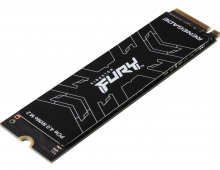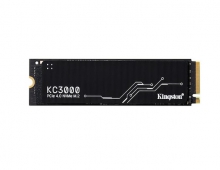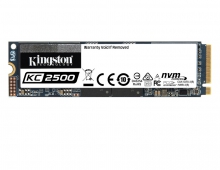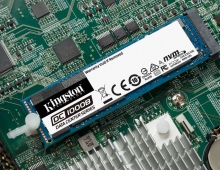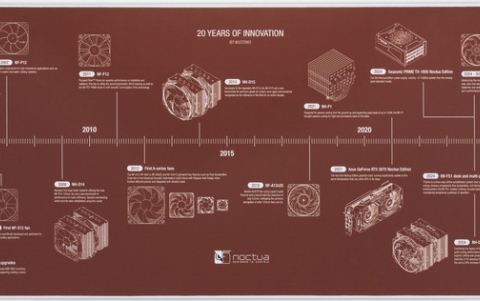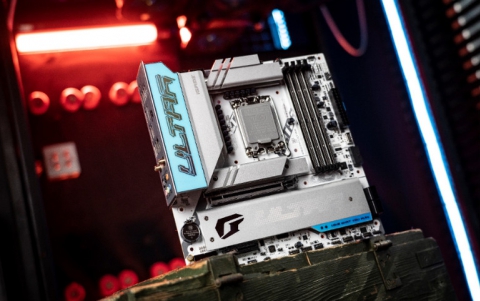Kingston HyperX 120GB SSD review
3. Benchmarks - page 1
Review Pages
Here is our testbed:
- Motherboard: Foxconn Quantum Force Rattler P67 vP04 BIOS
- Processor: Intel Core i5-2500K
- Case: Open Air testbed
- Power Supply Unit: Club 3D CSP-X1000CB 1000 Watt
- Graphics card: Club3D Radeon HD 6790 CoolStream Edition
- Memory: OCZ Gold PC3-10600 4x2GB 1333@CL9
- HDD: WD 500GB 7200RPM
- Monitor: LG L246WH-BH 24"
- Windows 7 x64 SP1 with latest updates installed
For the tests, we used the following software:
- HDTachRW v3.0.1.0
- HD Tune v4.50 Pro
- Crystal DiskMark v3
- ATTO Disk Benchmark v2.46
- ASS SSD Benchmark 1.5xxx
- IOMeter v2006.07.27 with Xtreme Benchmark template
- PCMark Professional edition v1.04
- AIDA64 Disk Benchmark Extreme Edition
We start the tests with the HDTachRW software. HD Tach is a low level hardware benchmark for random access read/write storage devices. The software measures the sequential read speed (at various points on the device), the random access speed and sequential write speed.
The software reported an average sequential writing speed of 396.6MB/s and an average sequential reading of 387.5 MB/s:
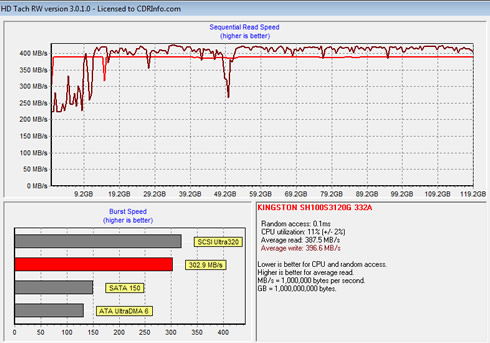
These figures are not exactly those quoted by Kingston but still, it is a very good performance.This is is typical for the specific benchmark and it has to do with the fact that the HD Tach sequential read test is different from other benchmarks.
We move on to the HD Tune Pro software, another utility we used to measure the drive's reading performance. Although not necessarily representative of real-world workloads, HD Tune's targeted tests give us a glimpse of each drive's raw capabilities. In the a sequential read test, the drive read the data at 201.8B/s (average). The reported access time was 0.216ms:
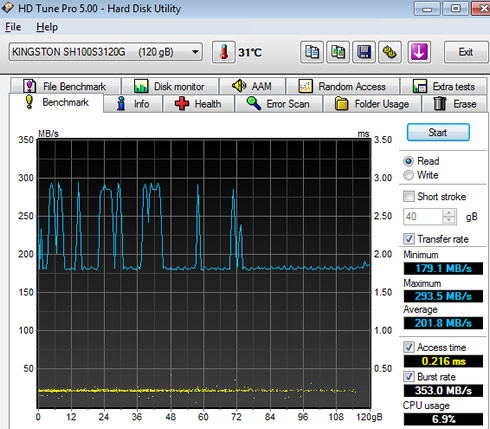
In the corresponding writing test, the drive wrote the data sequentially on the disc at 170.5 MB/s (average):
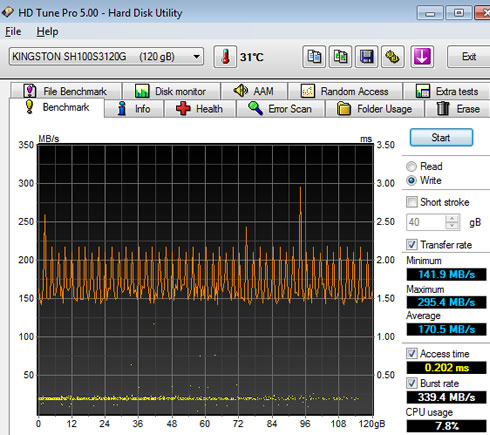
HDTune uses fixed strides across the array to measure small block sizes. If these blocks fall on page or chip boundaries, the time delays result in atypically low “calculated” performance spot data that are not representative of the drive’s real performance.
Here is another sequential file test. The SSD's average performance for write was 469.294 MB/s and 500.572 MB/s for read , approaching the nominal performance numbers quoted by Kingston. For this test we used the "Zero" data pattern:
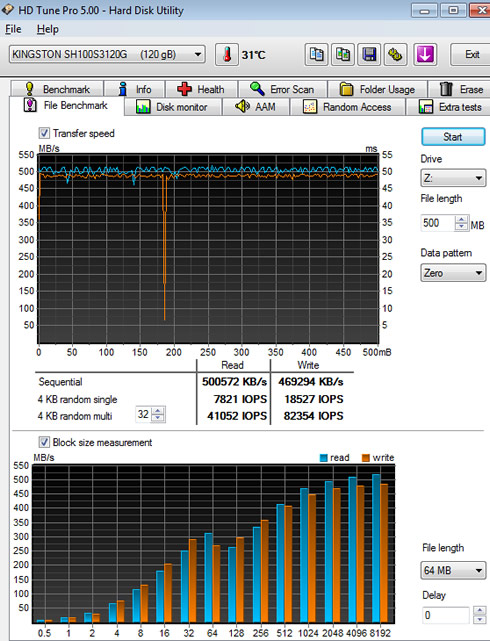
Selecting the "Random" data pattern had an impact to the drive's writing performance. This time we got 162.363 MB/s average write and 495.441 MB/s read:
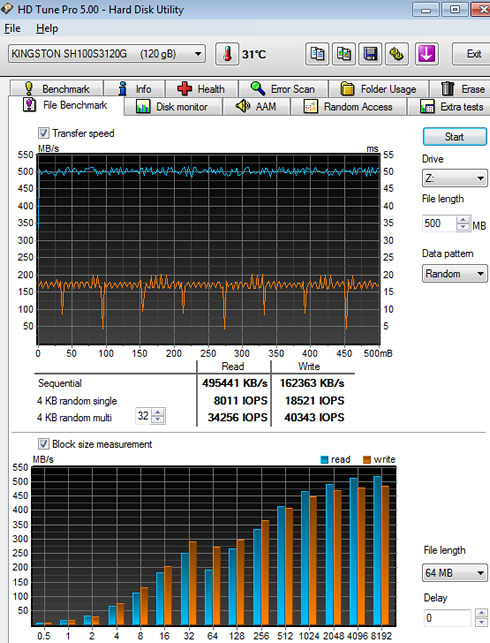
A "mixed" pattern slightly improved the reading performance of the drive:
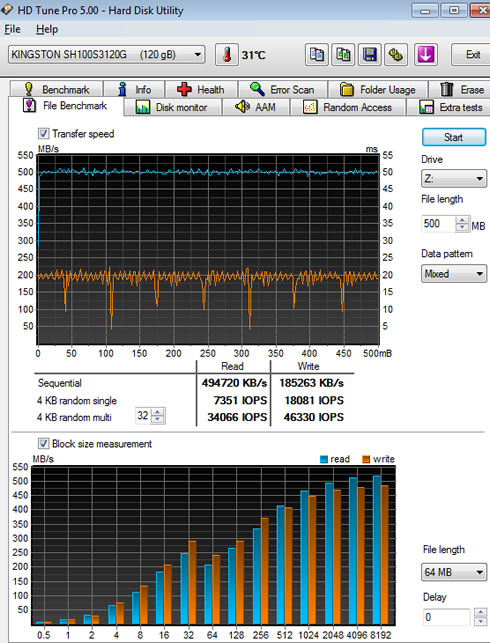
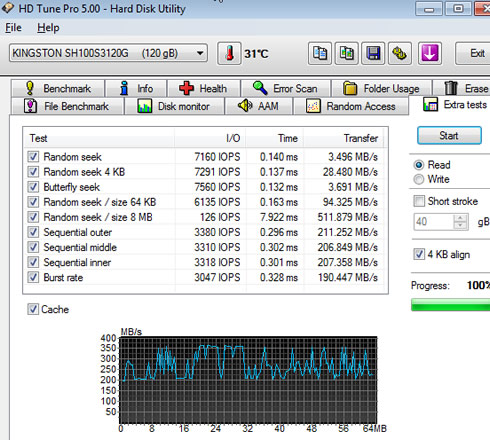
The HD Tune Pro also allows random read tests. Here are some more results with the software to randomly seeks files of different sizes:

Review Pages

